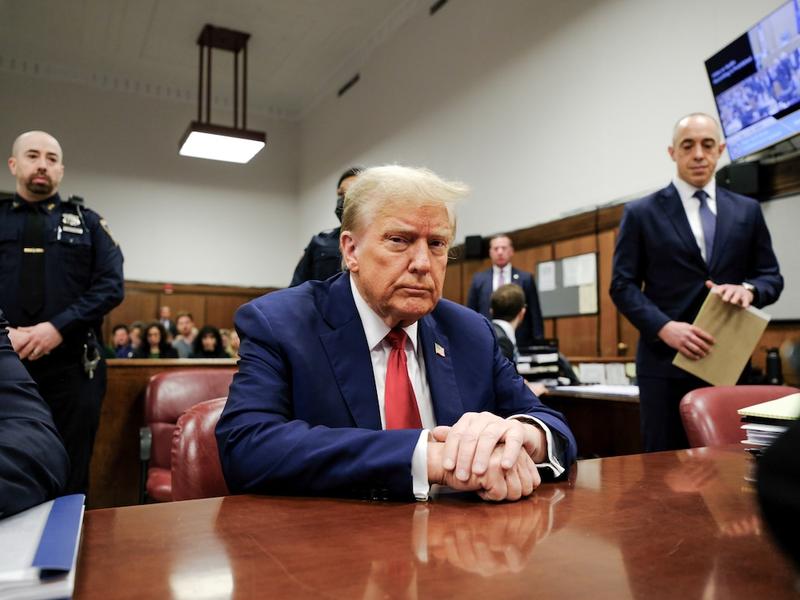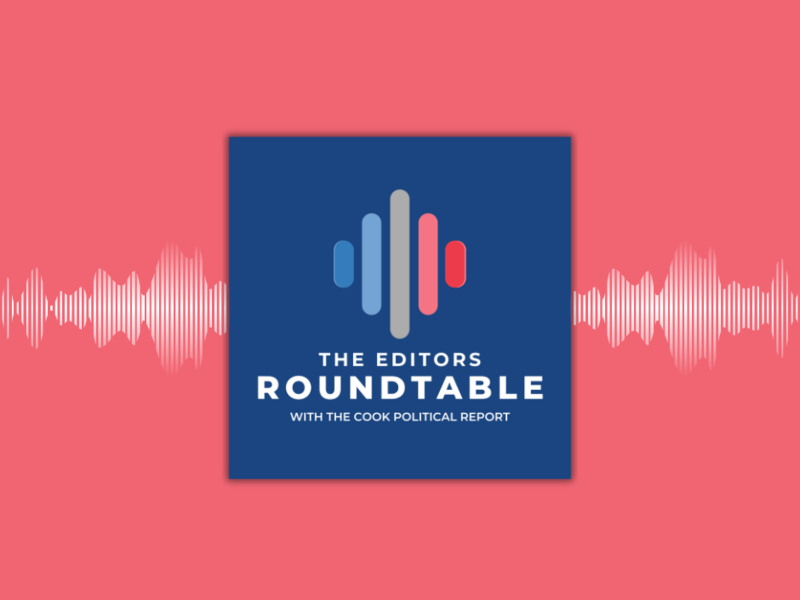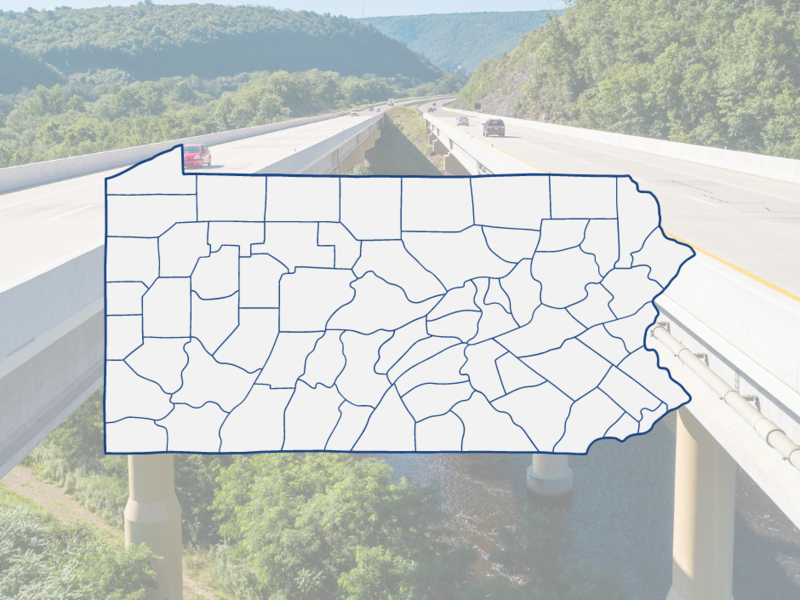
With the Georgia Senate Runoffs, we are finally at the end of the 2020 elections. As this is written, Rev. Raphael Warnock has been declared the winner in the Georgia special Senate election runoff, defeating appointed Republican Sen. Kelly Loeffler 50.9% to 49.1%. Democrat Jon Ossoff also defeated Sen. David Perdue 50.46% to 49.54% in the full-term Senate contest. So what have we learned from the Georgia results? Here are the early takeaways from the team at the Cook Political Report.
The Political Environment
Jessica Taylor, Senate Editor: Republicans who "humored" President Trump's baseless fraud claims denied Democrats any real victory moment, which kept their enthusiasm through the roof. And while the best message Republicans had was a GOP Senate being a check and balance on a Biden White House, they could never make that argument effectively because it required acknowledging that Trump had lost and would no longer be president. Instead, echoing the socialism claims — which went even further into Marxism — wasn't enough.
Charlie Cook, Editor and Publisher: In the period leading into the January 5 runoff election, the political environment was quite different from in the weeks before the November 3 voting. For over a year, there had been a steady drumbeat of talk about democratic socialism, fueled by Democratic presidential contender Bernie Sanders embracing that philosophy and Elizabeth Warren’s approach to issues quite similar though not explicitly using the same language. Much talk about a “Green New Deal” was causing angst among some who, while concerned about climate change, also had concerns about measures being taken that would turn out to have adverse consequences on jobs for some workers.
Democrats have demonstrated a vulnerability among working-class voters, the focus had primarily been on non-college whites, though there was some evidence in the November election than blue-collar workers who were African American or Latino may have shared some of those same concerns. In debates before the November election, neither Joe Biden nor Kamala Harris would say that they would not support efforts by some progressives to enlarge or “pack” the U.S. Supreme Court, a sign to some that there was a risk of Democratic over-reach if they won majorities in both the U.S. House and Senate along with the Presidency. Finally, after innumerable incidents of excessive force by law enforcement officers against minorities, peaceful and lawful demonstrations in quite a few cities turned into violence and rioting, again creating concerns among some that Democrats could not or would not work to create law and order and curtail such mayhem, with some progressives embracing the slogan to “defund the police.”
There is good reason to believe that the combination of all of these elements created a situation in which the undecided vote, chiefly independents and soft Republicans, and specifically “Toss Up” states went overwhelming for President Trump in the presidential race, Trump prevailed in all five of the states that the Cook Political Report had rated as a Toss Up that were decided in November. Of the five states decided by 1.5 percentage points or less, Trump won four out of five.
Though Sens. Loeffler and Perdue as well as Trump and Vice President Mike Pence tried to push the same buttons in the two-month runoff election, they just didn’t seem to have the saliency that they appeared to have in the regular general election.
The Campaign
Jessica Taylor, Senate Editor: Loeffler and Republicans especially worked to make Warnock seem scary. Many of their ads were not just dog whistles but all-out yelps to white voters about the African-American pastor. The attacks landed more as attacking the Black church, rooted in civil justice and Black liberation theology, which stands in stark contrast to white evangelicism. The messages had a clear undertone in a former Confederate stronghold, as Loeffler repeated that Warnock was a "radical liberal" and took some of his sermons out of context. One Georgia Republican strategist over the weekend told us they doubted it would be effective. "Raphael Warnock seems like he'd be a good guy to have a beer with," the GOP source said. And as one Georgia Democrat told the New York Times' Jonathan Martin, "They attacked the Black church" — and the increase in Black voters in heavily African-American counties, and even many new voters who campaigns were able to turn out — is what tipped this race.
Turnout and Polling
Charlie Cook, Editor and Publisher: Interestingly, there does seem to be a surge in turnout among some of the President’s supporters when Trump’s name is literally on the ballot that does not occur when it is not, as in the 2018 midterm elections as well as yesterday’s Georgia runoffs. It should be recalled that an element of Barack Obama supporters did the same, voting in large numbers in 2008 and 2012, when his name was on the ballot, but not in the 2010 and 2014 midterm elections or for that matter in 2016 when Hillary Clinton, not Obama, topped the Democratic ticket.
This may also impact what may be going on in polling. Interestingly the polling in Georgia over this year appeared to be quite accurate, both in the regular general election and the runoff. It may be that for whatever reason, the pro-Trump surge voters were not fully captured in 2016 or 2020, while the polling in the 2018 midterm and this week’s runoff election were both quite accurate.
2022 Midterm Implications
Amy Walter, National Editor:
Today, lots of folks are pointing out that Sen. Joe Manchin (D-WV), not Majority Leader-in-waiting Chuck Schumer, is the most important Democrat in Congress. The moderate West Virginian represents one of the most Republican (and pro-Trump) states in the country and has already come out against some of the progressive wish list items like eliminating the filibuster.
But, the real power players in the Democratic Senate caucus are the four up for re-election in 2022 in states that Biden narrowly carried, including Warnock who has to run for a full-term. This list includes Sens. Mark Kelly (AZ), Catherine Cortez-Masto (NV), and Maggie Hassan (NH).
Every vote they take, every statement they make, and every success or fumble of the Biden administration will impact them immediately.
Moreover, while narrow majorities in the House and Senate will temper Democrats' ability to ‘over-reach’ legislatively, some of their most liberal members - like Sen. Bernie Sanders - will be chairing Senate committees. The image alone of a gavel-wielding Sanders is likely to be enough to help raise money for GOP candidates in 2022.
Charlie Cook, Editor and Publisher: While it is true that midterm elections are referenda on the incumbent president, and that when a party has all three, outcomes are often much worse than when the opposition party controls the House and/or Senate, the really bad outcomes for the party in the White House are usually the result of the presidential/majority getting arrogant and/or over-reaching, “going too far.”
There is not much of a chance of Democrats going too far with a wafer-thin majority in the House, a paper-thin majority in the Senate and a president temperamentally suited more toward centrism and building a consensus.
Jessica Taylor, Senate Editor: It'll take a while to see whether or not Trump's threats help primary challengers against senators who dare to uphold the results of a free and fair election instead of subverting the will of voters hold. Incoming NRSC Chairman Rick Scott of Florida could be an interesting predicament given that he has indicated he intends to object to the Pennsylvania electoral votes. Democrats certainly have vulnerable members — including newly-elected Sens. Mark Kelly and Arizona and now Raphael Warnock in Georgia who have to run again in 2022 for a full term. But state parties and the base in those states seem unwilling to understand the direction that demographic shifts have changed their states, hence why both Martha McSally (in 2018 too) and Kelly Loeffler had to move to the far, far right just to survive primaries — positions that then doomed them in the general even as each was supposed to appeal to suburban women voters.
But all this from Trump could be bluster because his voters, as Charlie notes, don't turn out if he isn't on the ballot. Still, it can cause headaches for Republicans as they will now probably have to try to win back the Senate majority. Of course, the headaches will extend to governor's races too, to the glee of Democrats, with Georgia Gov. Brian Kemp, especially in the soon-to-be-former president's crosshairs.
Democrat/Biden Agenda
Charlie Cook, Editor and Publisher: The Senate Democratic agenda can only be as liberal/progressive as the least liberal/progressive Democratic senators — the lowest common denominator. Sens. Joe Manchin, Kirsten Sinema, Jon Tester, Chris Coons and a half dozen other Democrats may well be the screening committee for the Senate Democratic agenda items, what does not pass muster with them or with any Republicans is not likely to pass the Senate.









Subscribe Today
Our subscribers have first access to individual race pages for each House, Senate and Governors race, which will include race ratings (each race is rated on a seven-point scale) and a narrative analysis pertaining to that race.